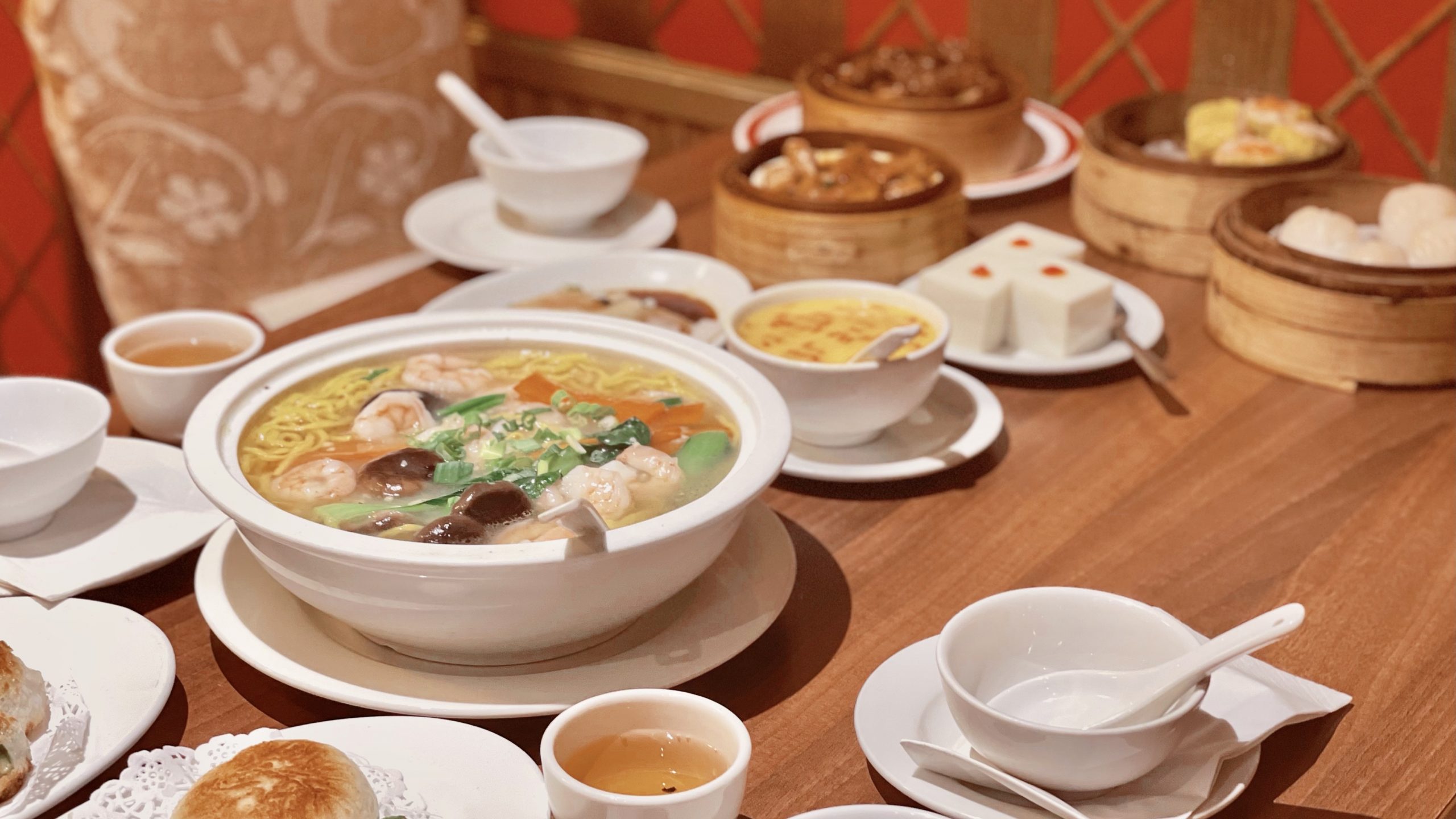Nearly 400,000 ethnic Chinese live in England and Wales, a quarter of them young. What is the significance of Chinese cooking to their belonging and inclusion in Britain?
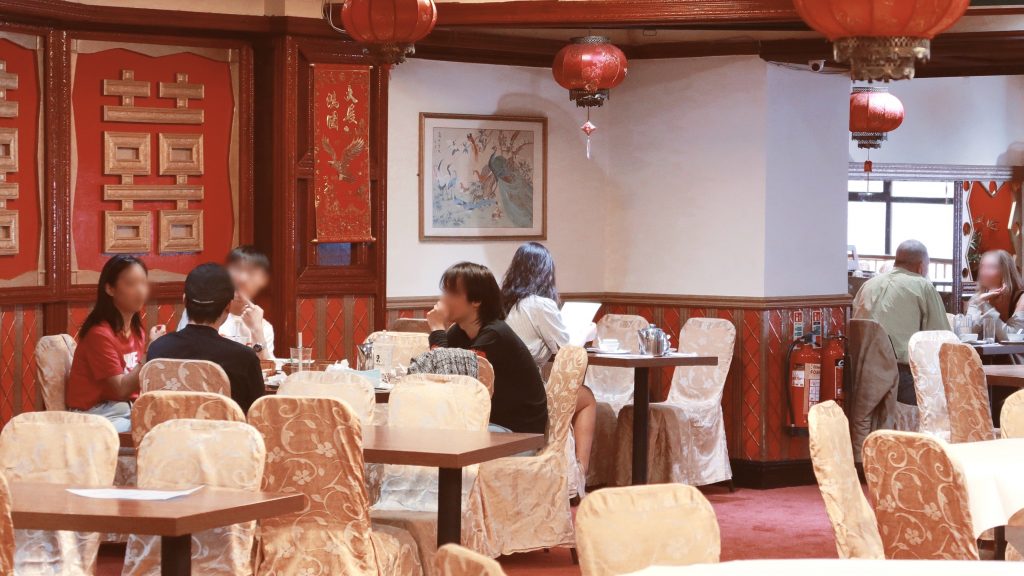
Qianwan Mao, a 26-year-old Chinese woman, standed in a daze at the entrance to Birmingham’s Bullring, a shopping centre, staring intently at her phone: she was so homesick, and wanted to buy a ticket back to China immediately. Crowds carrying shopping bags passed around her.
However, she realized there was no turning back when she thought about future plans.
“Take me out of here and buy hot chilies and pork,” she said to friends. “I must fry Shredded Pork with Vegetables tonight.” She felt that eating this Chinese delicacy was the only thing that consoled her at the time.
Shredded Pork with Vegetables is a well-known dish in China. Chilies and pork, the two ingredients, are essential for it. As the first bite of chilli and thin slices of pork that had been degreased by the hot oil were fed, “I thought I could live and suffer here,” she said.
It was her first day in Britain in 2018. She had no interest in the busiest streets of Birmingham, where her friends had brought her specially. She just wanted to go to the market.
Qianwan is from Kunming, Yunnan Province, living in Birmingham. The Chinese ethic group in Britain is getting younger. According to the Office for National Statistics, among the nearly 400,000 ethnic Chinese, students aged 16 and above account for a large proportion. Qianwan is one of them.
The meaning of home cuisine to her has changed totally since she came here. “I can’t help but crave foods that I would have rejected at home,” she said.
Sausages and preserved ham are the things Qianwan’s mother often cooks with. “She might steam them one day and fry them the next,” Qianwan said. “I thought how she could feed me these every day and not buy fresh meat.”
Now, however, she has naturally started buying ingredients and cooking like her mother. “One day, I missed mum’s sausages so much that I bought casings,” she said.
Qianwan cut up the meat and seasoned it. A plastic bottle was split in half, and the minced meat was fed through the bottleneck into the casing. She hung the sausages on a shelf, dried them by the window for a week, and then stored them in the refrigerator.
She never stopped her feverish exploration of Chinese food after cooking the first dish in the strange country.
Cooking authentic Chinese food in Britain is no easy task – finding ingredients can be a tricky step. “It’s a time-consuming and laborious process,” she said. “Because some foods need to be reprocessed, or alternatives need to be found, these’re things that need to be researched.”
“But I must get the taste of my mother’s food,” she said. “It’s something in my genes, an emotional bond that connects me to my family.”
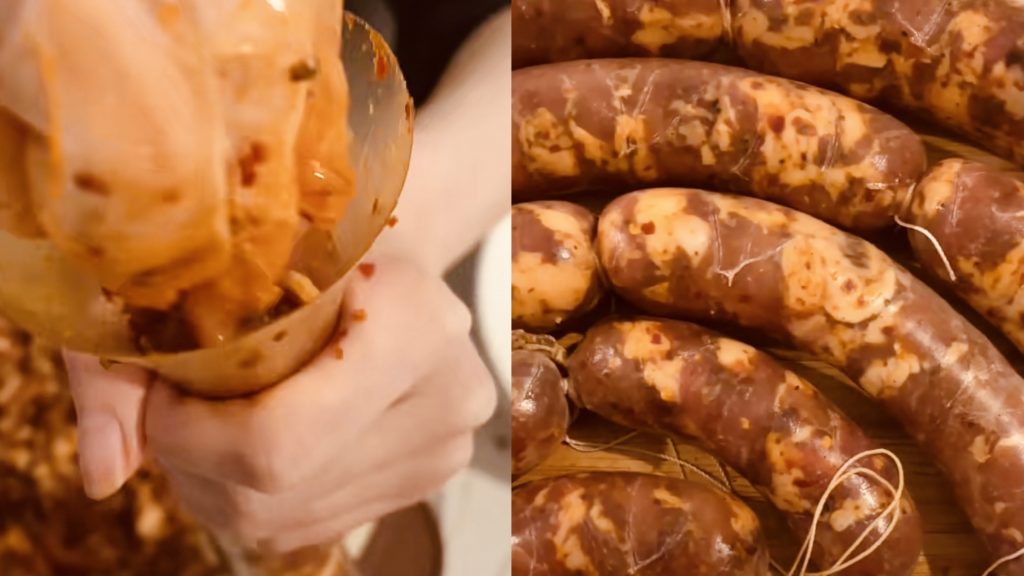
Zhiming Su, 46, a co-owner of Happy Gathering, a Chinese restaurant which opened 36 years in Cardiff, has met many Chinese people like Qianwan living in Britain who are keen on hometown food.
“Every afternoon we serve dim sum, when there are lots of Chinese people,” Zhiming said. “People love them.”
Zhiming has been living in Cardiff for 29 years. The first year he arrived here from Hong Kong, China, when he was only 17, he was already exposed to Chinese cooking. “My uncle was in the Chinese takeaway business, and I would help out,” he said.
“If I were in Hong Kong, I wouldn’t be in the business,” said Zhiming. “Because they think that people without knowledge used to open restaurants.”
He was part of a large group of Chinese immigrants from the 1980s onwards. The first wave of immigration came after the end of the First Opium War in 1842, which constitutes the oldest Chinese community in Western Europe.
The older generation came 20 to 30 years ago simply because they could earn more money working here, Zhiming explained.
“They can hardly find jobs other than running Chinese restaurants because most of them can’t speak English,” he said.
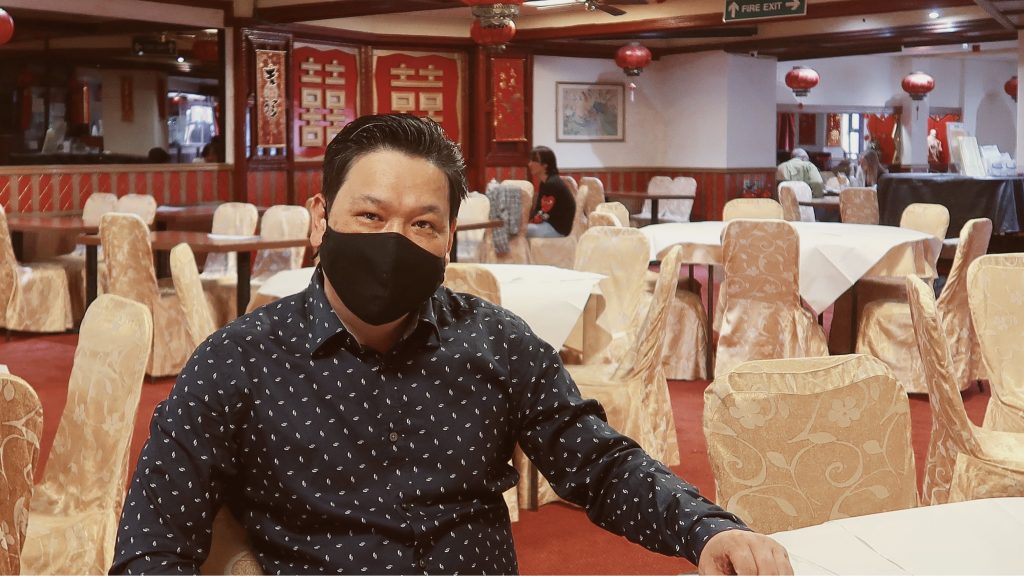
“The work is too hard,” said Xiao Yang, 22, living in Glasgow. When he was born, his parents came to Britain to manage lives running a Chinese restaurant. They arrived around the same time as Zhiming.
Xiao’s parents work more than 12 hours each day because they must prepare food ingredients and clean in advance. The couple were under tremendous pressure from the high-intensity job and sometimes had no time to care about their children’s feelings.
Xiao had a quarrel with his parents and ran away from home when 16. “It started with a small thing. But they were under working pressure, and we had problems communicating, so the conflict has been intensified,” he said.
He settled in Hamilton, 15 miles from his home, working at a local Chinese restaurant to earn his keep. “I realized in that instant that I couldn’t escape the influence of my family and Chinese food,” he said. “I wanted to escape, but I chose to work in another Chinese restaurant.”
They have since reconciled and Xiao is now studying at Glasgow University. As for the future, “They want me to live comfortably and do something I love,” he said.
“The new generation of young Chinese people is happy,” said Zhiming. He feels that now is the time when the country is developing, and youth have the chance to discover, choose and do what they like.
“I think those young Chinese who now open restaurants in Britain are making a choice out of love rather than having no choice,” said Feng Hu, 25, owner of Xianfuchasui, a new type of Chinese tea drinks shop in Cardiff.
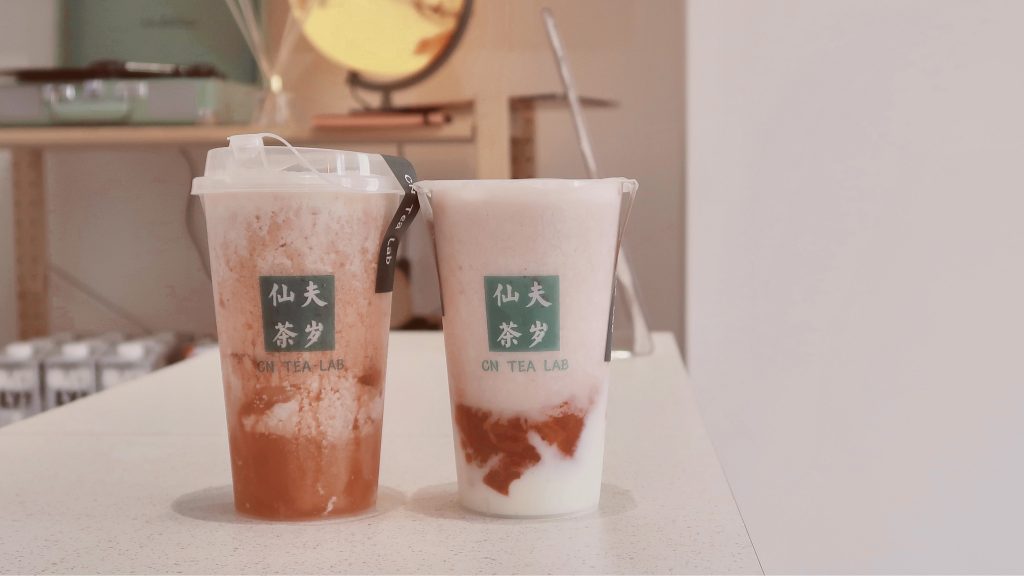
But their goal is not just to run a business. “We want to make a brand about Chinese tea drinks,” said Feng.
“In the field of tea drink consumption, the application level of combining raw leaf tea with other ingredients in China is higher than that in Britain,” he said. These shops in China currently mix raw leaf tea with milk, fruit, cheese, and vegetables to innovate new beverages.
“There’s a common aesthetic between the two countries. If a Chinese drink is tasty, it’ll surely be popular with British,” said Feng. “We hope to start by running this shop to promote Chinese historic tea culture in Britain.”
Unlike local milk tea shops, the tea in Feng’s shop is imported from China. “Jasmine green tea and black tea, those are the two main types of raw leaf tea by far,” said Feng.
With no relevant experience, it took them nearly two years to prepare. It officially welcomed people in December last year.

Nine months before the opening of the drinks shop, Qianwan, who has lived in Birmingham for nearly two years, set up her food account on social media platform, RED, which offers Chinese recipes for people living in Britain.
“The reason I created this account is that I want to share Yunnan food – my hometown food,” said Qianwan.
She originally just wanted to share her culinary experience, however, “Later, many people liked my recipes, and I also enjoyed cooking. So, I started updating regularly,” she said.
To some extent, it is her way of showing how much she missed her mother who lives in China. On Mother’s Day this year, Qianwan cooked fennel. “This dish is my mother’s favorite,” she said.
She took a picture and sent it to her mother, wishing her a happy Mother’s Day. “She gets the point I’m trying to make,” Qianwan said.
Due to the long distance, many fresh Chinese foods are difficult to transport to Britain. Qianwan is committed to tapping into local British food ingredients to create traditional Chinese flavor and share with people. “There’re certainly commonalities between the foods of each country and region. Using different baking methods, even subtle changes, and it’ll bring different feelings,” she said.
She is proud of being good at cooking home cuisine. “It’s the only bright spot in my life,” she said. “On a scale of 10, I rate my cooking skills as 20.”
“Yunnan’s food is unique,” she said. “I hope to share more.” Her future plan is to create a channel that will share content in English from the perspective of food diversity. “I want to let more people know that the same ingredients may look one way in your country, but look another way in my hometown,” Qianwan said.
Her recipes are so popular that one person left a message saying: “There’s nothing you can’t cook, and I suggest you open a Chinese restaurant in Britain.” She was happy to see it.
“How about crowdfunding? Let me open a Yunnan restaurant here,” she replied jokingly with a laugh.
